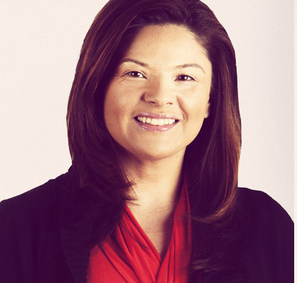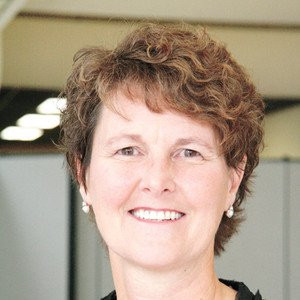It’s All About Education: Making a Commitment to Rhode Island’s Children
Wednesday, April 22, 2015
Last week, the 2015 Rhode Island Kids Count Factbook was presented to a room filled with health care and education professionals, policy makers, and local and state leaders. While Rhode Island has made great gains in some areas, decreasing both the percentage of infants born at high risk and the teen birth rate, for example, there are other areas where we must make progress if we are committed to the health and wellbeing of every child in our state.
Interestingly, while overall public school enrollment has dropped by 9% over the past ten years, the percentage of low-income students enrolled in the public schools has increased from 43% in 2010 to 47% in 2014. These figures imply that, as I’ve mentioned in previous columns, our schools are serving a population that requires more services. Low-income students are more likely to lag behind their peers academically, to have chronic health conditions that affect school attendance, and to drop out of school before graduating from high school. In order to provide the services necessary to ensure that all kids achieve and succeed, our schools will likely need more funding.
The percentage of children in Rhode Island who are living in families below the federal poverty threshold rose from 19% in 2010 to 21.5% in 2014. This statistic places our state 26th in the nation, and we have the highest percentage of all six states in New England. Children in poverty are more likely to experience difficulty in school, less likely to be enrolled in preschool, and have fewer opportunities to participate in afterschool and extracurricular programs. More than one in five Rhode Island children enter our school system already at risk of failure.
GET THE LATEST BREAKING NEWS HERE -- SIGN UP FOR GOLOCAL FREE DAILY EBLASTIn her keynote speech at the Rhode Island Kids Count breakfast, Brown University President and economist Christina Paxson stated that investments in early childhood education are one of the most important things we can do, and that the “economic returns to investing in early childhood health and development are incredibly high.” She also emphasized the importance of home visiting programs and high quality daycare to the growth of a secure and competent citizenry and work force.
Enrollment in state pre-kindergarten has risen from 144 in 2012 (when it was first offered) to 306 in 2014, while 81% of all kindergartners in the state are enrolled in full-day kindergarten. In her FY2016 budget proposal, Governor Gina Raimondo has allocated funds to triple the number of pre-kindergarten programs in the state and to implement universal full-day kindergarten for all Rhode Island children. This is a great start, but I don’t believe it goes far enough or starts early enough to ensure that all children have the best chance for success.
In the state of Rhode Island in 2014, there were 238 children enrolled in Early Head Start and 527 children enrolled in Head Start. In the last 5 years, there has been a decrease in both the number of licensed early learning centers and the number of licensed family childcare providers, meaning that many parents struggle to find quality care for their infants and toddlers.
Rhode Island uses federal funding from the Maternal, Infant, and Early Childhood Home Visiting (MIECHV) program to fund three evidence-based family home visiting programs: Healthy Families America, Nurse-Family Partnership, and Parents as Teachers. Senator Paiva Weed and others have introduced the RI Family Home Visiting Act to ensure that the Department of Health develops and coordinates these home visiting programs. There were a total of 500 families enrolled in these programs statewide in 2014. An additional 2,184 developmentally delayed children in the state receive early intervention services. Together, all of these early childhood focused state-sponsored programs serve 3,449 children, less than two percent of the 212,847 children under age 18 living in Rhode Island.
We know that a child’s life from birth to age three is a period of tremendous brain growth; the child’s environment during that time can have a profound impact on the structure of the brain, affecting learning and success into adulthood. Good nutrition, safe housing, secure and loving relationships with caregivers, and multisensory experiences are all critical to a child’s healthy development. Home-visiting programs, affordable high-quality daycare, and early childhood education centers provide needed support to families as they raise healthy, inquisitive children who will enter our schools ready to achieve.
Elizabeth Burke Bryant, Executive Director of Rhode Island Kids Count, has stated: “Our state’s economic future depends on healthy children and strong families…. Investing in healthy, well-educated children is an investment for our future workforce and the next group of community leaders for Rhode Island.” Our state policy makers seem to understand the critical importance of early childhood health and education programs; now, they must also find the money in our state budget to expand those programs so that ALL of Rhode Island’s children will grow to reach their full potential.
Lauri Lee is an independent consultant with over twenty years of experience in both public and private education, with learners from infants through adults. With experience in teaching, marketing, communications, social media, development, admissions, and technology, she is able to synthesize many of the issues facing our educational system today. She lives in Providence, RI with her family, a big dog, and a small cat. She blogs at http://www.AllAboutEducation.net and you can follow her on Twitter at @fridovichlee.
Related Slideshow: RI Experts on the Biggest Issues Facing Public Education
On Friday November 22, the Hassenfeld Institute for Public Leadership at Bryant University, the Latino Policy Institute of Roger Williams University, the Rhode Island Association of School Committees, the Providence Student Union, and RI-CAN: Rhode Island Campaign for Achievement Now will host Rhode Island leaders in the public and nonprofit sectors for a symposium on "the civil rights issue of the 21st century, adequacy and equity and the State of Education in Rhode Island."
Weighing in on the the "three biggest factors" facing education in the state today are symposium participatnts Gary Sasse, Founding Director of the Hassenfeld Institute for Leadership; Christine Lopes Metcalfe, Executive Director of RI-CAN; Anna Cano-Morales, Chairwoman of the Board of Trustees, Central Falls Public Schools and Director, Latino Policy Institute at Roger Williams University; Tim Duffy, Executive Director, RI Association of School Committees; and Deborah Cylke, Superintendent of Pawtucket Public Schools.
Related Articles
- It’s All About Education: How Can We Ensure that Kids Have Great Teachers?
- It’s All About Education: Can Universal Preschool Close the Achievement Gap?
- It’s All About Education: The High Cost of Higher Education
- It’s All About Education: The Rise in Kindergarten Readiness Testing
- It’s All About Education: Some of Education’s Best Ideas from 2014
- It’s All About Education: What is an “Excellent” Teacher, Anyway?
- It’s All About Education: Will Charter Schools Fix Our Public School System?
- It’s All About Education: Making the Dream a Reality
- It’s All About Education: Playing in the Woods Can Help Kids Reach Their Full Potential
- It’s All About Education: What if College Isn’t Necessary
- It’s All About Education: Why Common Core Won’t Help Our Children
- It’s All About Education: Social Promotion is Not the Problem
- It’s All About Education: Schools that Harness the Power of Nature
- It’s All About Education: Choosing the Right School for Your Child
- It’s All About Education: How Breakfast Could Help Close the Achievement Gap
- It’s All About Education: After School Programs Make a Difference
- It’s All About Education: Learning Life Skills at Hope High
- It’s All About Education: Failure to Launch - It’s Not Just a Movie
- It’s All About Education: Changing Lives with School Lunches
- It’s All About Education: How Vaccination Affects Schools – and Society
- It’s All About Education: Free College Tuition - Why Just Community College?
- It’s All About Education: A Recipe for Disaster - Common Core Standards for Kindergarten
- It’s All About Education: Inequities in the College Admissions Process
- It’s All About Education: Is the American Dream a Pipe Dream?
- It’s All About Education: School Choice - Vouchers and Tax-Credit Scholarships Don’t Pay













